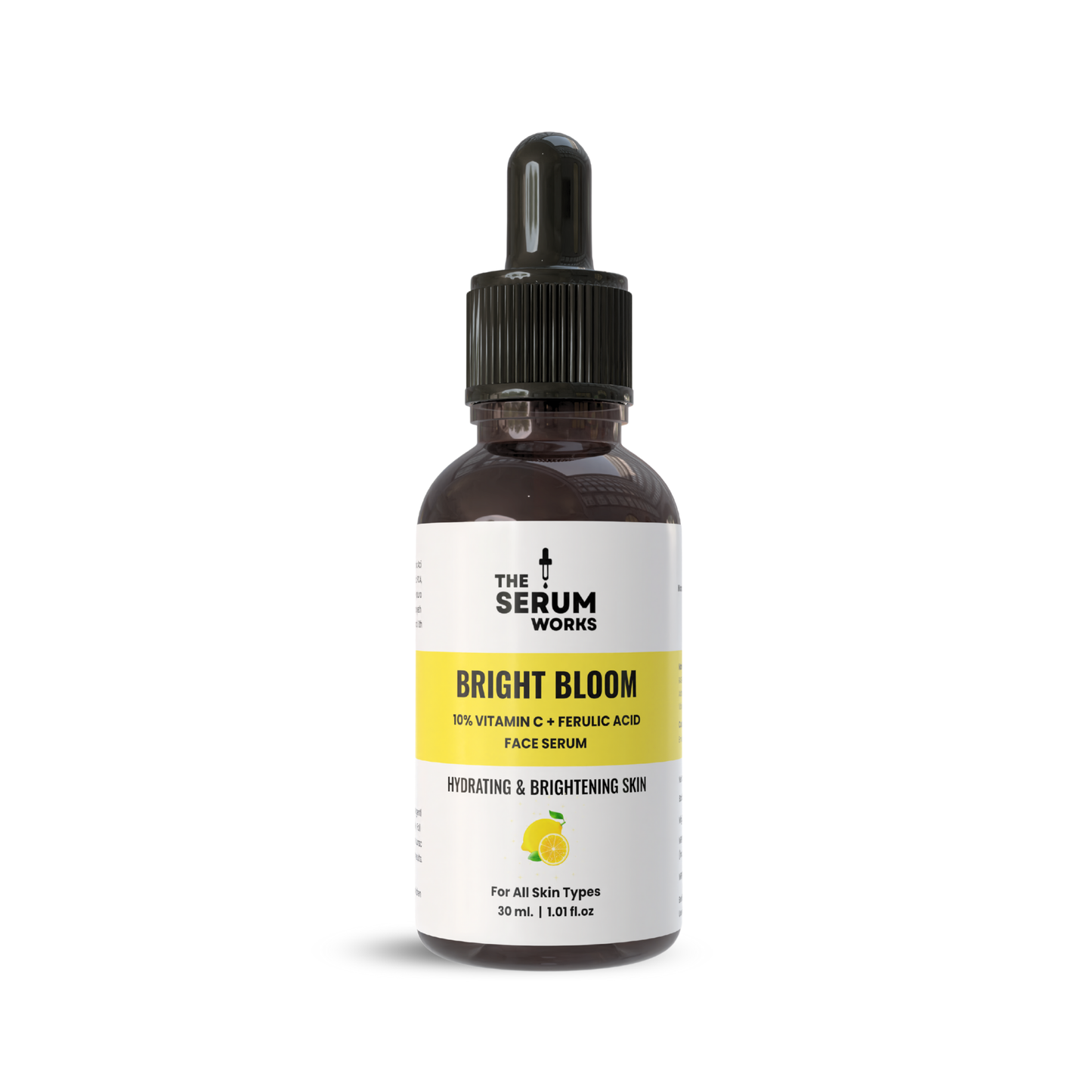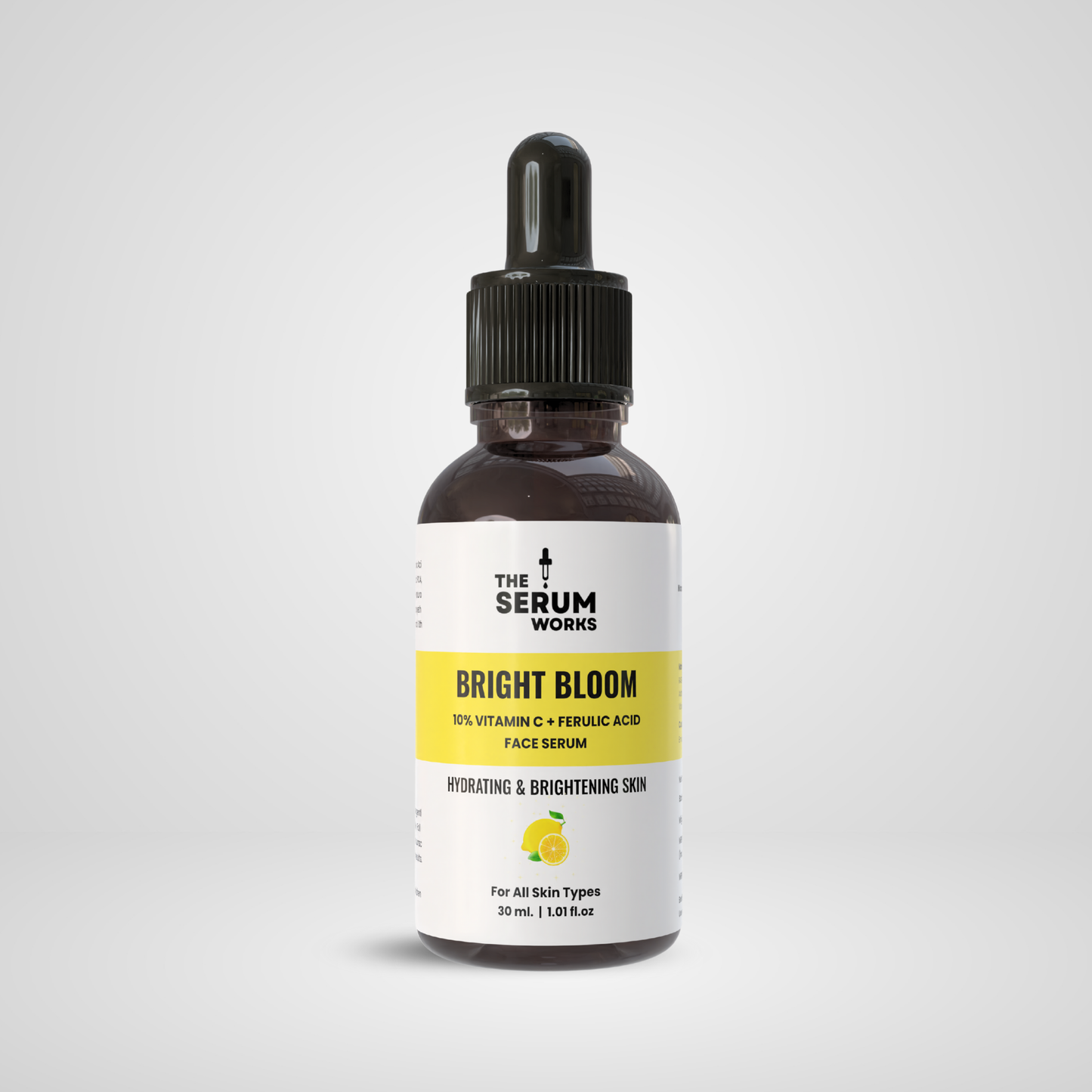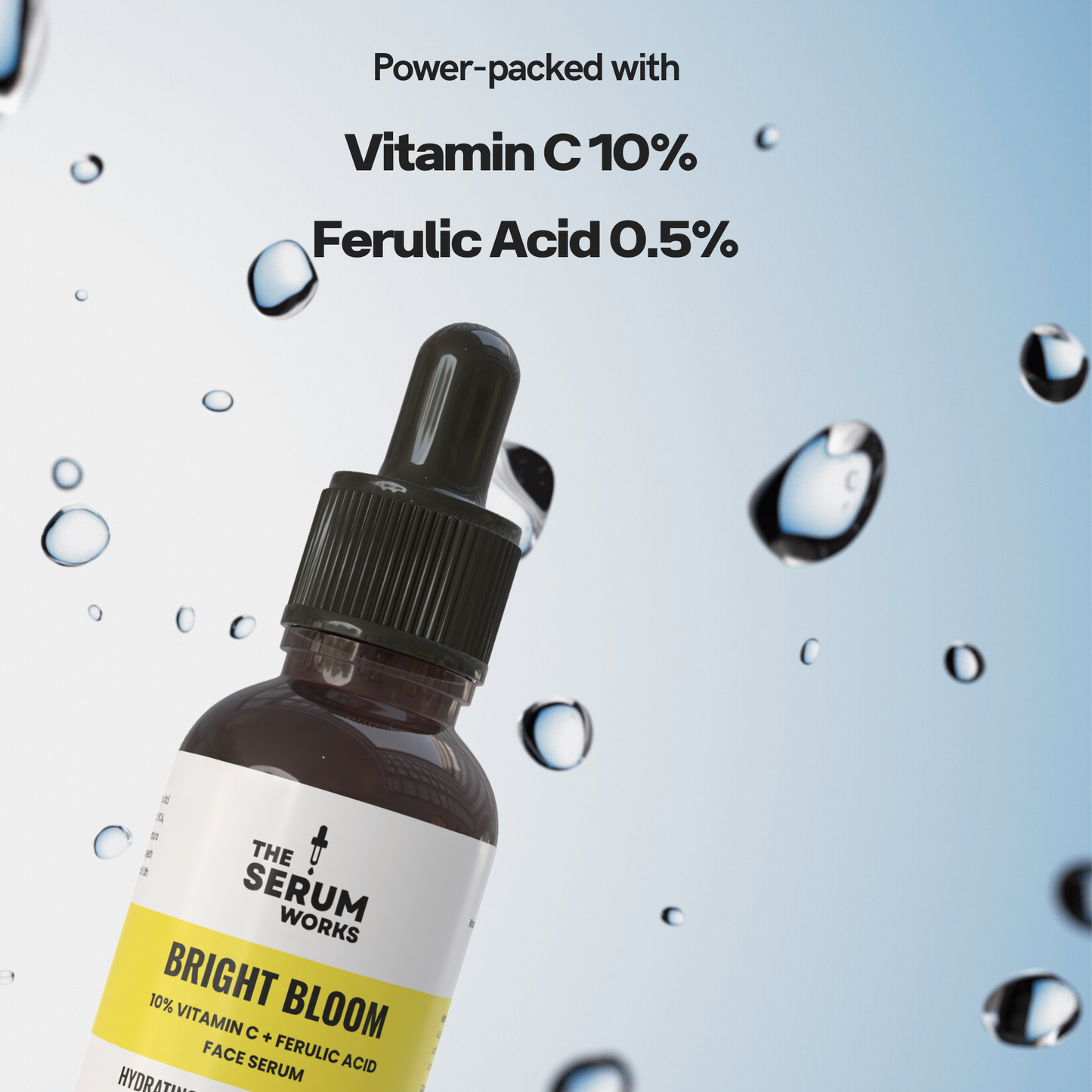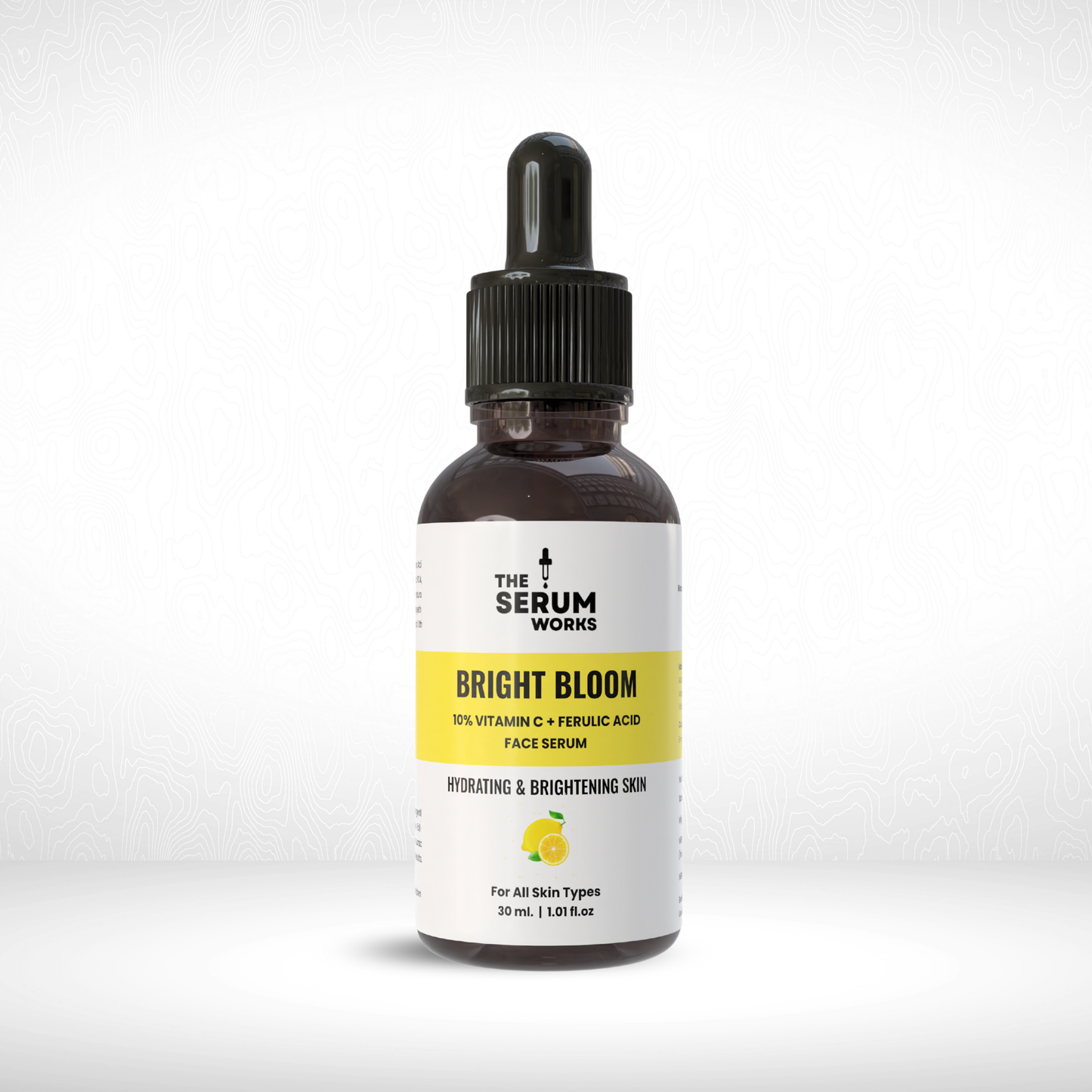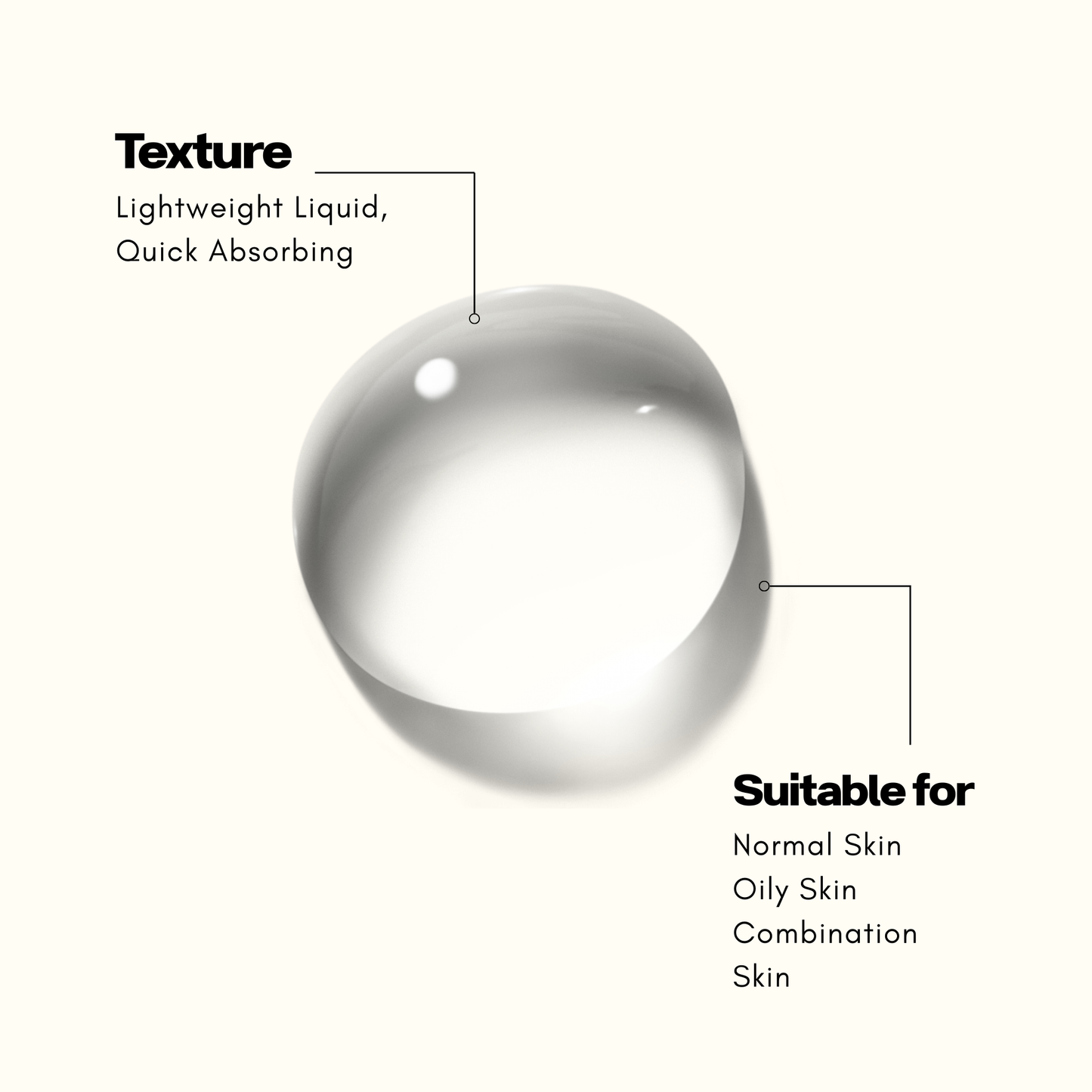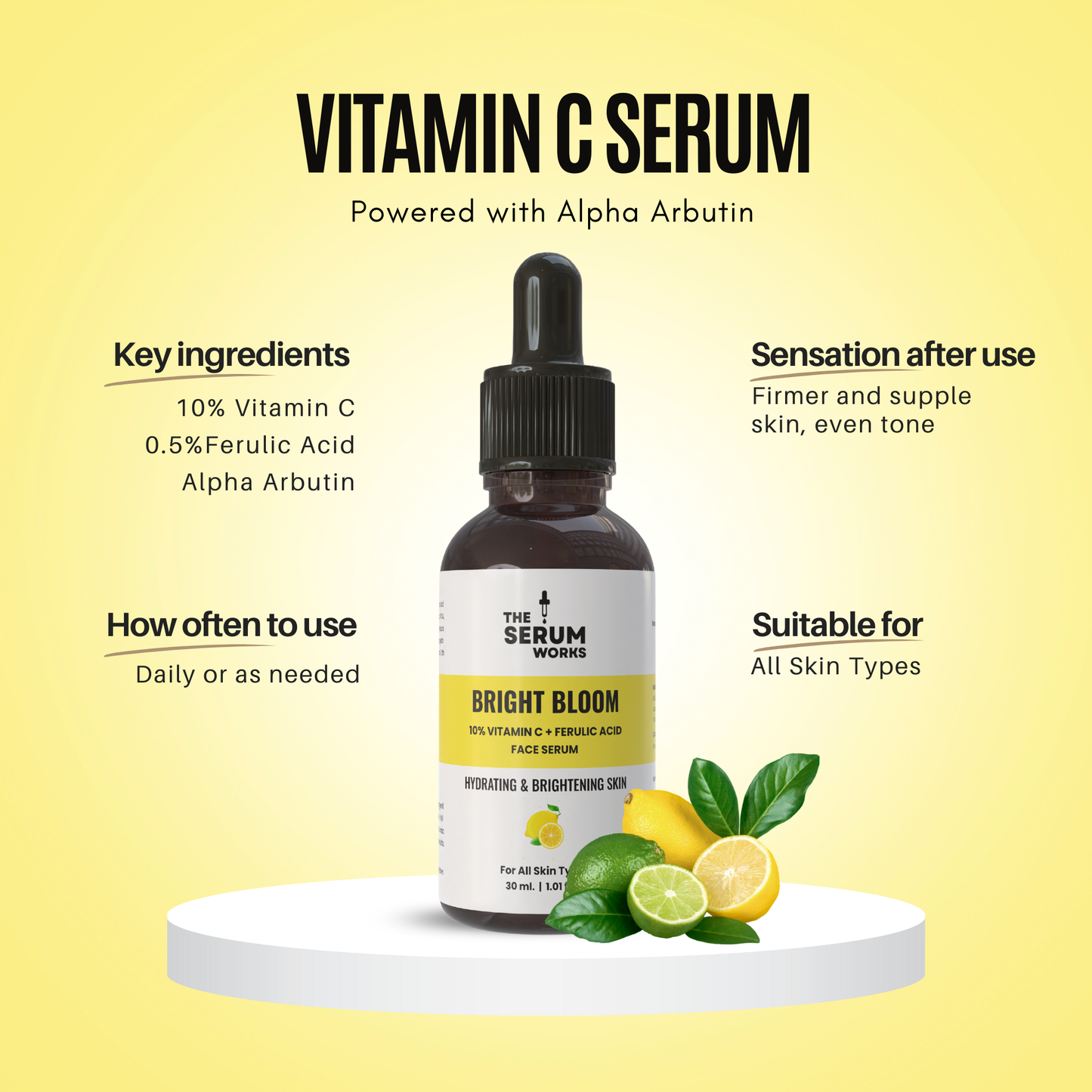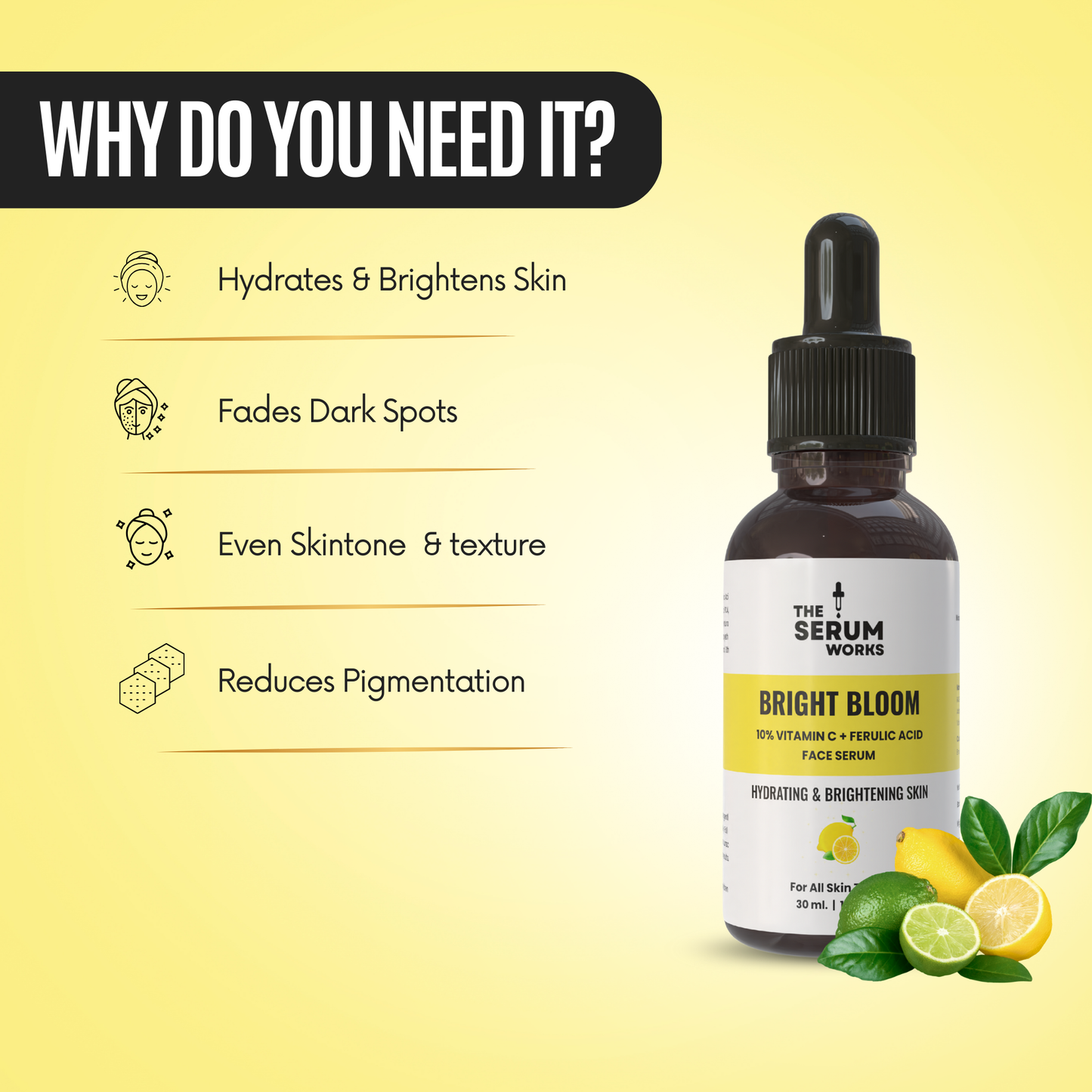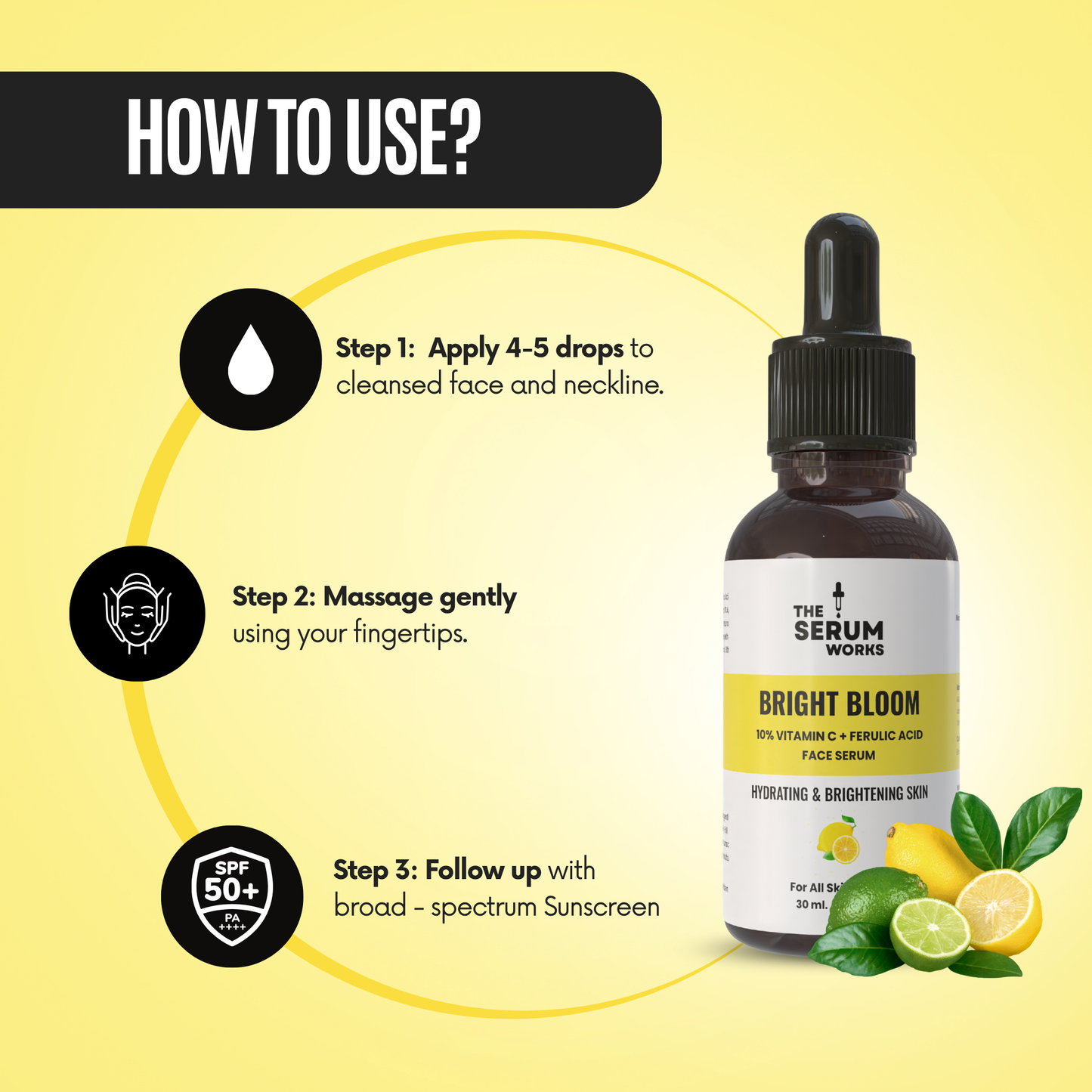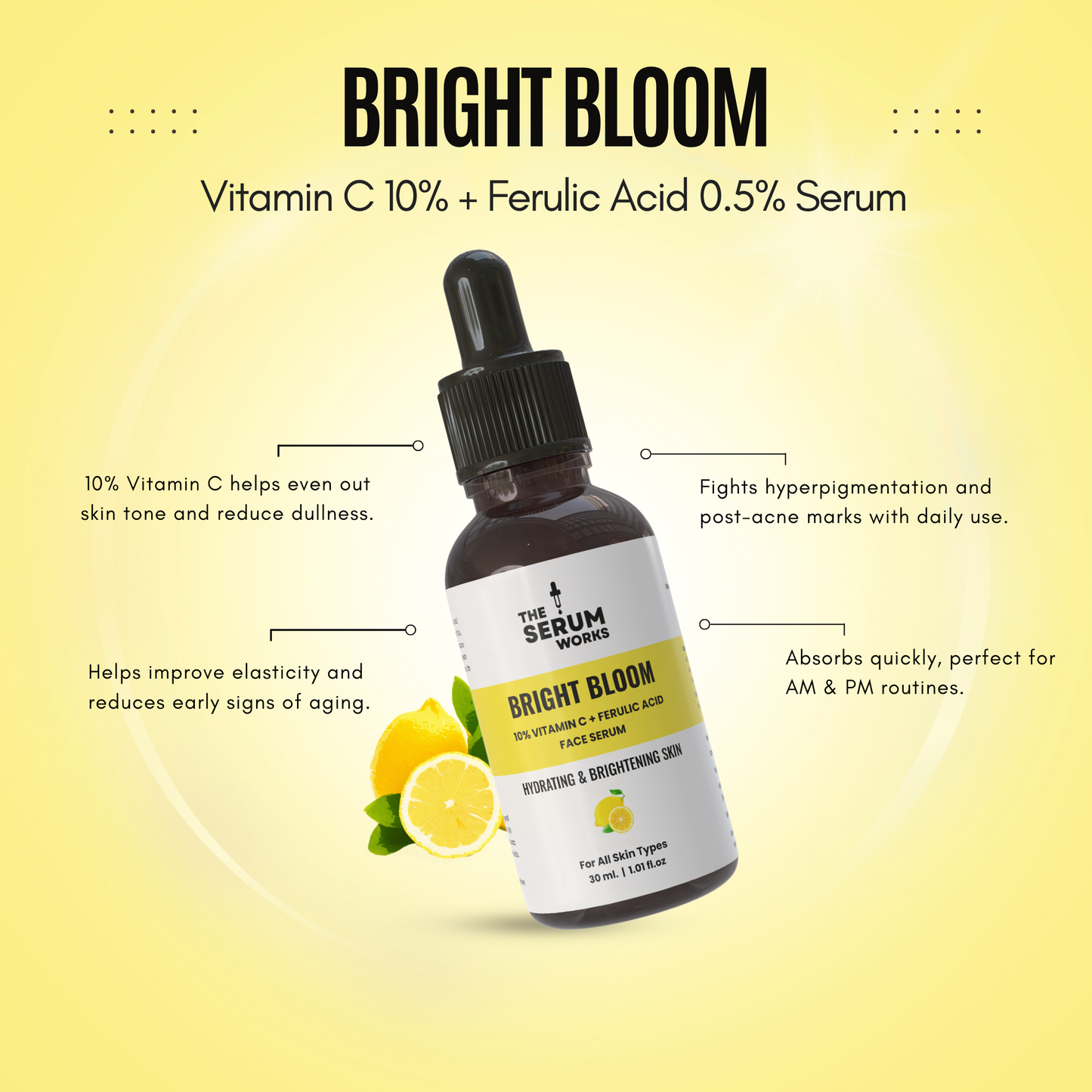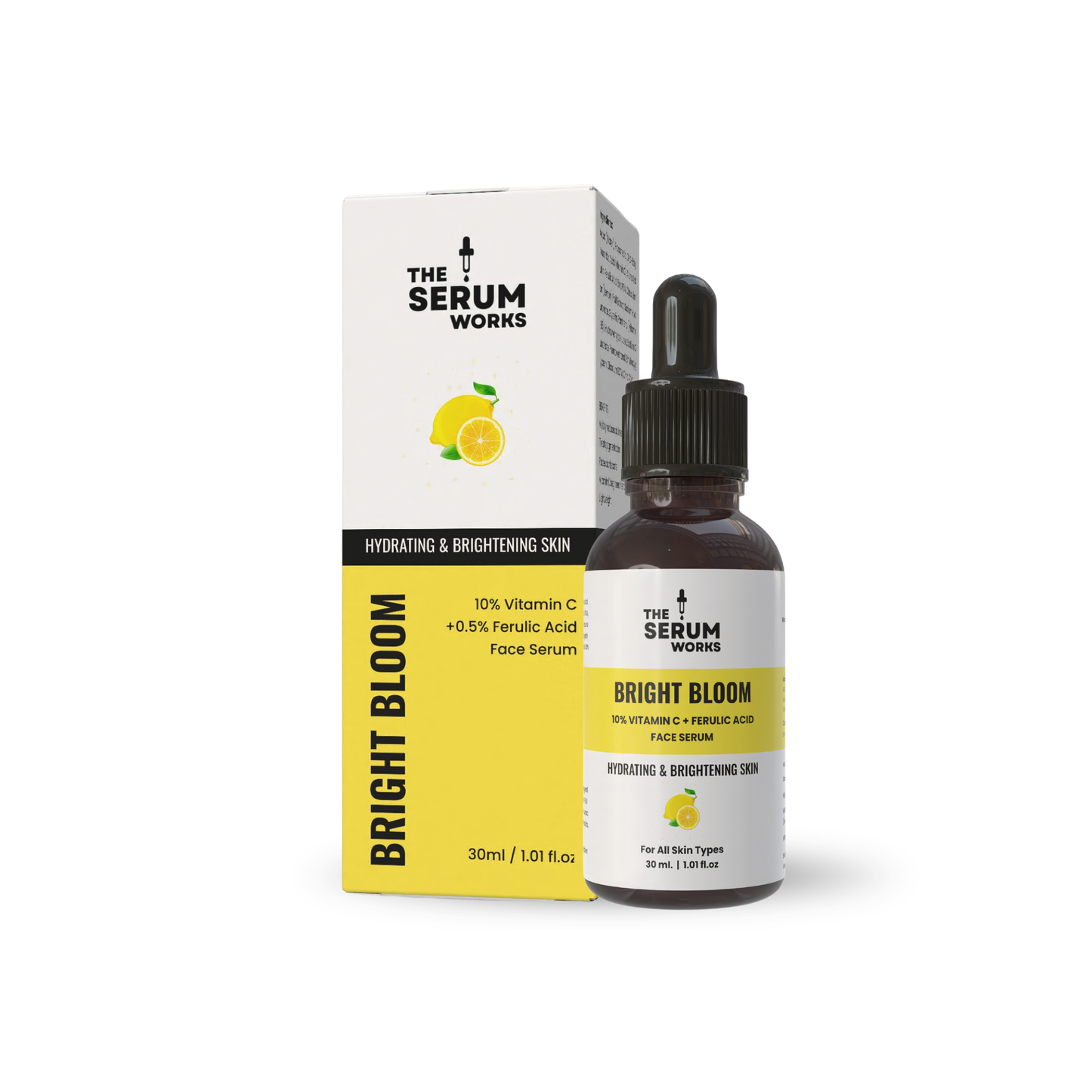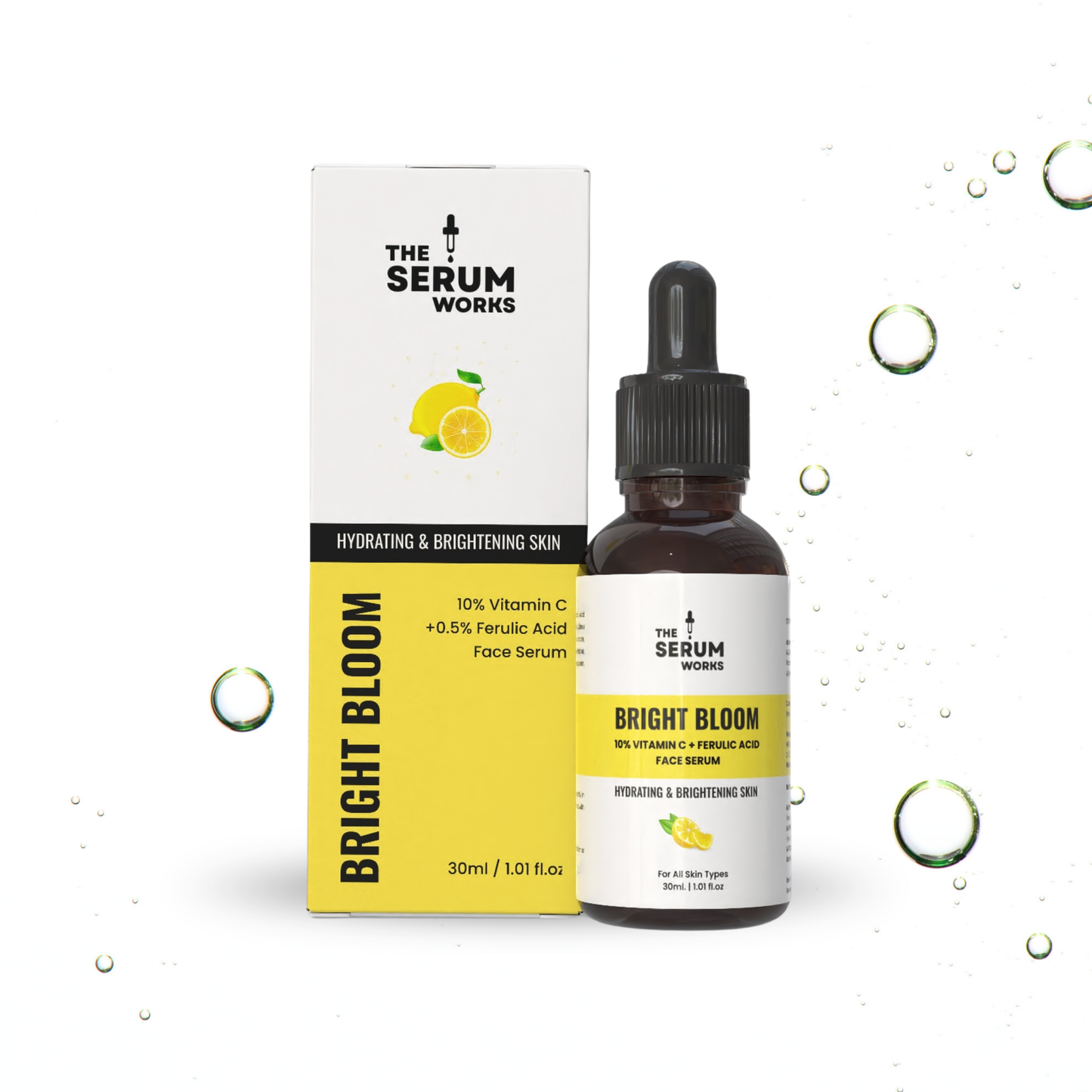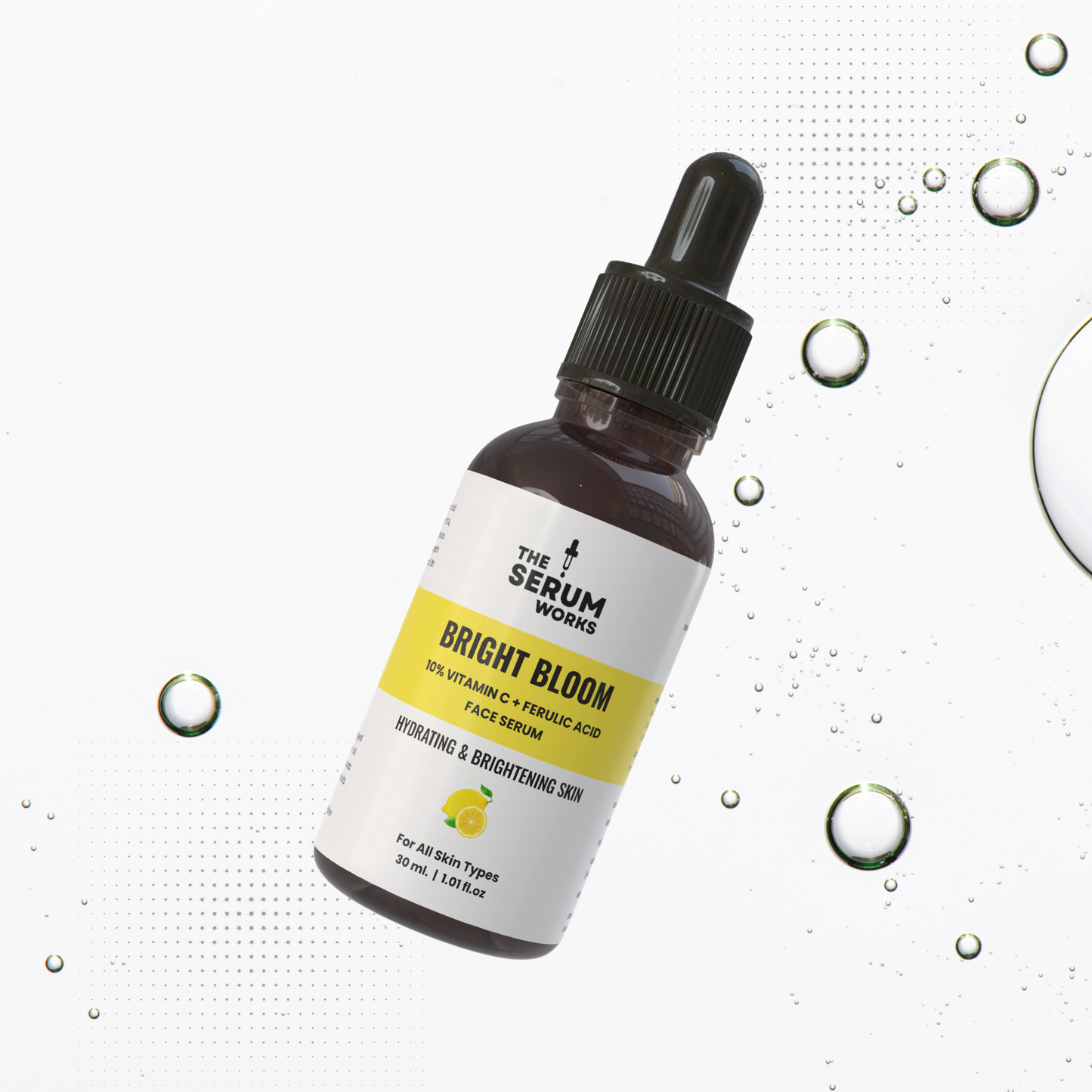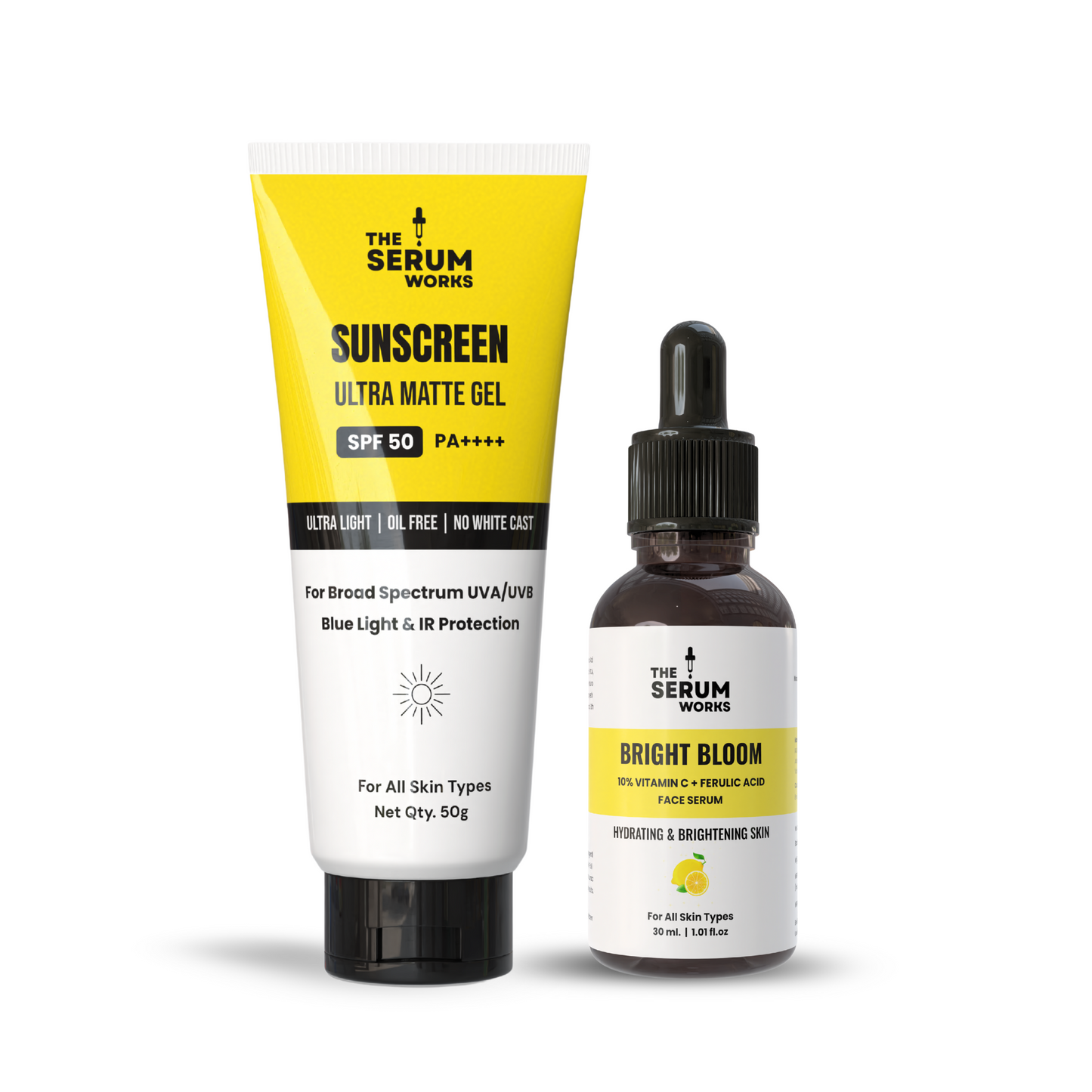The Science-Backed Power of Vitamin C: Your Ultimate Guide to Radiant Skin

Share
Vitamin C has earned its reputation as the gold standard antioxidant in skincare, and for good reason. This powerhouse ingredient offers scientifically-proven benefits that can transform your skin's health and appearance. Whether you're dealing with signs of aging, hyperpigmentation, or simply want to maintain healthy, glowing skin, vitamin C is an essential addition to your skincare routine.
What Makes Vitamin C So Special?
Vitamin C (ascorbic acid) is the most abundant antioxidant in human skin. Unlike plants and many animals, humans cannot synthesize vitamin C naturally due to the absence of the enzyme L-glucono-gamma lactone oxidase. This means we must rely entirely on external sources—either through diet or topical application—to maintain adequate levels in our skin.
The skin contains naturally high concentrations of vitamin C, particularly in the epidermis, which indicates its crucial role in maintaining skin health and function. However, these levels can be rapidly depleted by environmental stressors like UV radiation and pollution, making topical supplementation essential for optimal skin health.
The Science Behind Vitamin C's Skin Benefits
1. Collagen Synthesis and Anti-Aging
Enhanced Collagen Production
Vitamin C plays a critical role as a cofactor for prolyl and lysyl hydroxylases—enzymes that stabilize collagen's triple helix structure. Research demonstrates that vitamin C:
-
Increases collagen synthesis by up to 30-50% in clinical studies
-
Stabilizes existing collagen fibers and prevents degradation
A landmark clinical study showed that daily use of vitamin C formulations for at least three months significantly improved fine and coarse wrinkles on the face and neck, along with overall skin texture and appearance.
Anti-Aging Mechanisms
Research published in Clinical, Cosmetic and Investigational Dermatology found that vitamin C works through multiple anti-aging pathways:
-
Suppresses matrix metalloproteinases (MMPs) responsible for collagen breakdown
-
Increases tissue inhibitors of MMPs
2. Powerful Antioxidant Protection
Free Radical Neutralization
Vitamin C's antioxidant properties are extensively documented in scientific literature. It effectively neutralizes reactive oxygen species (ROS) including:
-
Superoxide anion radicals
-
Hydroxyl radicals
-
Hydrogen peroxide
UV Protection Studies
Clinical research demonstrates that vitamin C reduces ROS levels by 30-50% in UV-exposed skin cells. When combined with vitamin E and ferulic acid, vitamin C provides enhanced photoprotection and reduces long-term UV damage.
3. Skin Brightening and Pigmentation Control
Melanin Inhibition
Vitamin C reduces hyperpigmentation through multiple mechanisms:
-
Inhibits tyrosinase enzyme activity—the key enzyme in melanin production
A clinical trial using 25% vitamin C with penetration enhancers showed significant reduction in melasma pigmentation after 16 weeks of treatment.
4. Therapeutic Benefits for Skin Conditions
Research has documented vitamin C's effectiveness in treating various skin concerns:
-
40% improvement in acne scars
-
35% reduction in psoriasis symptoms
-
Significant improvement in skin hydration and texture
Types of Vitamin C: Understanding Your Options
L-Ascorbic Acid: The Gold Standard
L-ascorbic acid is the purest and most potent form of vitamin C available. It offers:
-
Highest bioavailability and immediate skin absorption
-
Most extensively researched form with proven efficacy
However, L-ascorbic acid faces significant stability challenges, easily oxidizing when exposed to light, heat, and air.
Stable Vitamin C Derivatives
For those seeking more stable alternatives, several derivatives offer similar benefits with improved stability:
Magnesium Ascorbyl Phosphate (MAP)
Ethyl Ascorbic Acid
Optimal Concentrations and Effectiveness
Research-Backed Concentration Guidelines
Clinical studies reveal optimal vitamin C concentrations for different benefits:
-
5-10% L-ascorbic acid: Effective for general antioxidant protection and maintenance
-
15-20% L-ascorbic acid: Maximum efficacy for anti-aging and pigmentation control
-
20% vitamin C: Showed 84.7% transdermal penetration efficiency in permeability studies
Penetration and Bioavailability
Research demonstrates that vitamin C concentrations of 10%, 15%, 20%, and 25% effectively penetrate the skin, with 20% showing optimal efficiency. A 28-day clinical study using 20% vitamin C lotion showed significant improvements in:
-
10.53% increase in skin gloss
-
9.20% improvement in skin elasticity and tightness
Formulation Challenges and Solutions
Stability Issues
The primary challenge in vitamin C formulation is maintaining stability:
-
Oxidation susceptibility when exposed to light, air, and heat
-
pH sensitivity requiring acidic environments for effectiveness
-
Incompatibility with certain ingredients like niacinamide in some formulations
Advanced Delivery Systems
Recent innovations address these challenges through:
-
Encapsulation technologies protecting vitamin C from degradation
-
Nanoparticle delivery systems enhancing skin penetration
-
Multi-layered formulations for controlled release
-
Combination with stabilizing ingredients like vitamin E and ferulic acid
Maximizing Vitamin C Benefits
Application Guidelines
For optimal results:
-
Use vitamin C in the morning for antioxidant protection throughout the day
-
Apply to clean skin before moisturizer and sunscreen
-
Start with lower concentrations (5-10%) and gradually increase
Expected Timeline for Results
Based on clinical research:
-
2-4 weeks: Initial brightening and texture improvements
-
6-12 weeks: Significant reduction in fine lines and hyperpigmentation
-
3+ months: Maximum anti-aging benefits and collagen synthesis
Safety and Considerations
Who Should Use Vitamin C
Clinical studies show vitamin C is generally well-tolerated across different skin types. However:
-
Sensitive skin: Start with stable derivatives like MAP or lower concentrations
-
Normal to oily skin: Can typically handle higher concentrations of L-ascorbic acid
-
All skin types: Benefit from vitamin C's protective and rejuvenating properties
Potential Side Effects
While generally safe, some individuals may experience:
-
Mild irritation or tingling initially, especially with higher concentrations
-
Sensitivity reactions (rare, affecting less than 5% of users in clinical trials)
The Future of Vitamin C in Skincare
Ongoing research continues to reveal new applications for vitamin C, including its potential benefits for:
-
Wound healing acceleration
-
Hair growth stimulation
-
Scar and stretch mark reduction
Conclusion: The Science Speaks
The extensive body of research supporting vitamin C's benefits in skincare is compelling and conclusive. From its fundamental role in collagen synthesis to its powerful antioxidant protection, vitamin C has earned its place as an essential skincare ingredient backed by decades of scientific validation.
Whether you choose pure L-ascorbic acid for maximum potency or opt for stable derivatives for gentler application, incorporating vitamin C into your skincare routine is supported by robust clinical evidence. The key is selecting the right form and concentration for your skin type and concerns, then maintaining consistent use to achieve the scientifically-proven benefits this remarkable ingredient offers.
Ready to harness the power of vitamin C for your skin? Choose products with proven formulations, start gradually, and prepare to experience the transformative benefits that science has so thoroughly documented.


